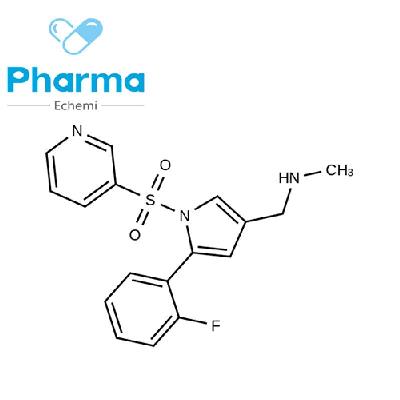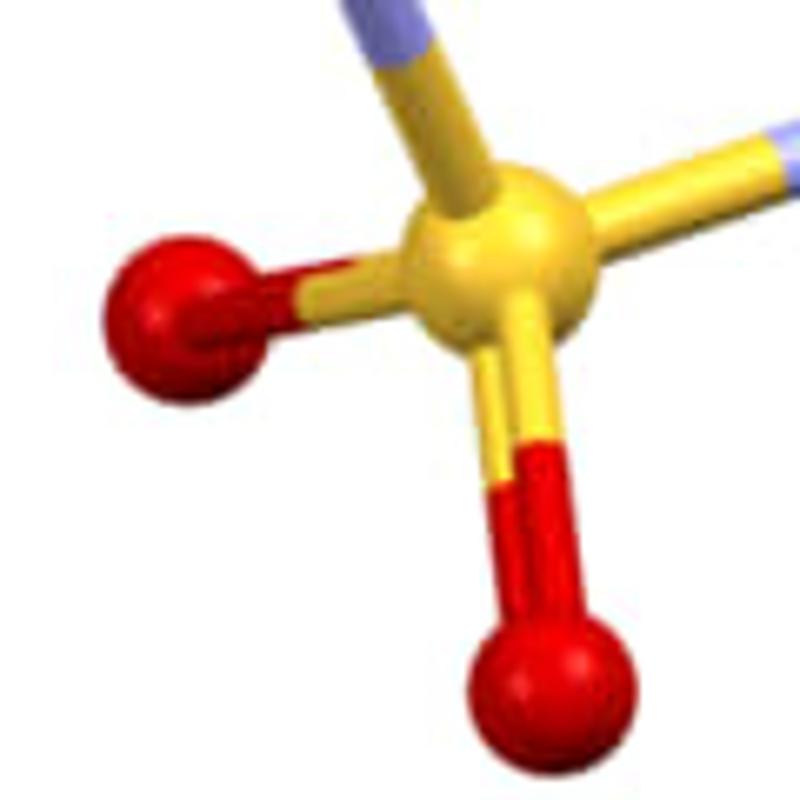-
Categories
-
Pharmaceutical Intermediates
-
Active Pharmaceutical Ingredients
-
Food Additives
- Industrial Coatings
- Agrochemicals
- Dyes and Pigments
- Surfactant
- Flavors and Fragrances
- Chemical Reagents
- Catalyst and Auxiliary
- Natural Products
- Inorganic Chemistry
-
Organic Chemistry
-
Biochemical Engineering
- Analytical Chemistry
-
Cosmetic Ingredient
- Water Treatment Chemical
-
Pharmaceutical Intermediates
Promotion
ECHEMI Mall
Wholesale
Weekly Price
Exhibition
News
-
Trade Service
For medical professionals only
Adverse reactions
of proton pump inhibitors should be noted in the process of clinical work| Blue whale Xiaohu
Proton pump inhibitors (PPIs) inhibit H+/K+-ATPase in the tubules of gastric parietal cells, prevent the exchange of K+ and H+, thereby increasing the pH of gastric juice, and are currently the most effective drugs
to inhibit gastric acid secretion.
PPIs have become first-line agents for the treatment of gastric and duodenal ulcers, gastroesophageal reflux disease, and erosive esophagitis, and are routinely used to prevent gastrointestinal bleeding
in patients at high risk of long-term use of nonsteroidal anti-inflammatory drugs (NSAIDs) and aspirin.
However, as one of the most prescribed drug classes at present, PPI has many adverse effects and may cause serious consequences, especially in patients who have been on long-term medication
.
Let's look at a case
.
Case Express: 1 year of intermittent diarrhea, what is the cause?
The patient, a 55-year-old female, presented to the gastroenterology clinic
in June 2015 with "intermittent diarrhea for 1 year, exacerbation for 2 days".
The patient received ranitidine 150 mg/day 1 year ago after a diagnosis of dyspepsia, followed by chronic diarrhea symptoms up to 8 times a day, then discontinued ranitidine and changed to omeprazole 20 mg/qd
, but diarrhea persisted.
Weight loss of 12 kg
in the last 1 year.
Anamnesis: hypertension, dyslipidemia, psoriasis, depression, endometriosis, hypothyroidism
.
Smoking history 35 years, half a sachet a day, drinking history for more than 20 years, an average of about 1000ml beer/day
.
Medications: omeprazole, venlafaxine, atenolol, losartan, trimebutin, atorvastatin, metoclopramide, and loperamide
.
Physical examination: chest, abdomen, cardiovascular system, nervous system examination without abnormalities
.
To exclude organic lesions of the digestive tract, colonoscopy is ordered, but then the patient is lost to follow-up
.
On 7 July 2016, the patient again presented to the emergency department with diarrhoea, nausea and vomiting
.
Emergency biochemistry: urea 21.
5 mmol/L, creatinine 157 micromol/L, K+: 3.
3 mmol/L), suggesting acute kidney injury (Table 1).
Upper endoscopy was performed and reported to be normal
.
After the patient received hydration therapy, the creatinine level decreased to 61 μmol/L
.
After discharge, he continued to receive omeprazole, metoclopramide, and loperamide
.
On July 25, 2016, the patient presented to the emergency department again with vomiting, diarrhea, and confusion, and the electrolytes were all low in Mg2+, Ca2+, and K+ (Table 1).
After correction of electrolyte abnormalities, the patient is discharged from hospital and supplements with calcium, magnesium, and potassium taken
orally.
After discharge, the patient stops drinking
.
After 1 month, the patient makes an appointment for an outpatient colonoscopy
.
Endoscopic findings were no abnormalities
except for a single polyp removal.
Biopsy pathology: small cell colitis, hyperplastic polyps
.
Diarrhea improved
after treatment with budesonide 6 mg/day.
Although the patient's upper gastrointestinal endoscopy showed no abnormalities, dyspeptic symptoms persisted, so he switched to rabeprazole 20 mg and BID
.
Table 1.
Electrolyte test results at each visit
On 6 May 2017, the patient presented again with major seizures with incontinence and tongue
bites.
Serum electrolytes: Mg2+: 0.
24 mmol/L, Ca2+: 1.
97 mmol/L, K+: 3, 3 mmol/L (Table 1).
Denied diarrhea, vomiting, and did not drink alcohol
for 1 year.
Electrolyte abnormalities are corrected with intravenous therapy, while rabeprazole
is discontinued.
After discontinuation of PPIs, the patient continued outpatient follow-up with serum electrolytes and showed no abnormalities, diarrhoea, vomiting, confusion, or seizures
.
In January 2022, the patient received pantoprazole again for gastric acid-related symptoms such as acid reflux and heartburn
.
After one month, serum magnesium was 0.
76 mmol/L, which was lower than the baseline level (0.
82 mmol/L), and it was considered that PPI was caused by taking PPI, and it was decided to permanently stop PPI
.
Adverse effects of PPIs
The most common adverse effects of PPIs include headache, nausea, constipation, flatulence, diarrhoea, rash, and dizziness, while other less common adverse effects include fractures, pneumonia, dementia, and hypomagnesaemia
.
This case report highlights a 55-year-old woman with nonulcerative dyspepsia who presented to the hospital after PPIs with multiple adverse presentations, including microscopic colitis, severe electrolyte abnormalities (hypomagnesemia, hypokalemia, hypocalcaemia, and hypophosphatemia) leading to acute impaired consciousness and convulsions
.
Patients discontinuing PPIs after multiple visits are associated with
clinicians' poor awareness of the adverse effects of PPIs.
Chronic diarrhoea is one of the important adverse effects of PPI, possibly due to microscopic colitis, and has been described
in a variety of PPIs and other acid-suppressing drugs such as ranitidine.
When NSAIDs are combined with PPIs, the risk of microscopic colitis is high
.
Microscopic colitis may result in severe electrolyte abnormalities (e.
g.
, hypokalemia).
Long-term use of PPIs significantly increases the risk of hypomagnesaemia, and hypomagnesaemia usually recurs
when medications are switched between PPIs.
The exact mechanism by which PPI induces hypomagnesemia is not fully understood, but is mainly related to
PPI-induced intestinal Mg2+ malabsorption.
Hypomagnesaemia can lead to hypokalemia
through increased urinary potassium excretion.
Secondary hypocalcemia may be associated with
inhibition of parathyroid excitation following hypomagnesemia.
Asymptomatic hypokalemia or hypocalcemia observed in patients receiving PPIs is usually precipitated by hypomagnesemia
.
Hypomagnesaemia can cause spasms, tetany, convulsions, arrhythmias, hypoparathyroidism, hypocalcaemia, hypophosphatemia, muscle spasms or weakness, vertigo, ataxia, seizures, depression, and psychotic symptoms
.
How do I deactivate PPI?
Referring to the medication instructions of omeprazole, short-term medication (≤ 4~8 weeks) is recommended for most PPI therapeutic indications, as shown in the following table:
Table 2 Usage and dosage of omeprazole
Indications for long-term PPIs include Barrett's esophagus, severe esophagitis with La grade C/D, or patients
with a history of peptic ulcer bleeding.
For adults who have completed 4~8 weeks of heartburn, mild to moderate gastroesophageal reflux disease or esophagitis treatment and symptoms have resolved, PPI should be stopped in time to avoid unindicated medication
.
Since discontinuation of PPIs can lead to hypergastrinemia, excessive gastric acid secretion during abrupt discontinuation of PPIs can lead to symptoms
of rebound dyspepsia.
Therefore, it is recommended to gradually reduce the dose of the drug over 4~8 weeks, or take the drug
"as needed" when symptoms of indigestion occur.
Hypomagnesaemia due to proton pump inhibitors is not uncommon
.
Hypomagnesaemia can lead to electrolyte abnormalities such as secondary hypokalemia, hypophosphatemia, and hypocalcaemia, which can have serious consequences
.
Diarrhea and microcytic colitis caused by ranitidine and proton-pump inhibitors can also cause or further exacerbate these electrolyte abnormalities
.
Without stopping proton-pump inhibitors, electrolyte disturbances can persist
.
Clinicians should increase awareness of the adverse effects of PPIs rather than blindly correcting electrolyte abnormalities
through symptomatic treatment.
Patients with indications for long-term PPIs should be followed up regularly for magnesium, potassium, calcium, and phosphate levels
.
The web version of the doctor's station is online
Scan the QR code to directly view more clinical knowledge of gastroenterology and hepatology
👇👇👇 References: [1] Tagboto S.Severe Electrolyte Disturbances Due to Proton Pump Inhibitor Therapy: An Underrecognized Problem with Potentially Severe Sequelae.
Am J Case Rep.
2022; 23:e936893.
[2]Kieboom BC, Kiefte-de Jong JC, Eijgelsheim M, et al.
Proton pump inhibitors and hypomagnesemia in the general population: a population-based cohort study.
Am J Kidney Dis.
2015; 66(5):775-82.
[3]Isse N, Hashimoto M.
Omeprazole-induced hypomagnesaemia, causing renal tubular acidosis with hypokalaemia, hypocalcaemia, hyperlactacidaemia and hyperammonaemia.
Drug Ther Bull.
2021; 59(4):60-63.
[4]Liamis G, Hoorn EJ, Florentin M, Milionis H.
An overview of diagnosis and management of drug-induced hypomagnesemia.
Pharmacol Res Perspect.
2021; 9(4):e00829.
Focus on the frontier of diagnosis and treatment, analyze difficult cases, 2022 digestive annual inventory is about to open, on January 7, 5 experts from the Department of Gastroenterology of West China Hospital of Sichuan University will bring us an inventory of acute pancreatitis diagnosis and treatment, 6 experts from the Department of Gastroenterology of the Second Xiangya Hospital of Central South University will bring us the diagnosis and treatment inventory of intestinal polyps, click the QR code in the poster below to make an appointment~
This article reviewed: Yang Health Deputy Chief Physician of Jingdezhen Second People's Hospital Responsible Editor: Wen Jiaxin
- End -* "Medical Community" strives to publish the content professional and reliable, but does not promise the accuracy of the content; Relevant parties are requested to check
separately when adopting or using it as a basis for decision-making.
Call for papers: Medical Digestive Liver Disease Channel welcomes your submissions! Click the link below or scan the QR code to submit: https://titan.
yishengzhan.
cn/#/public_contribution Please fill in the real information
according to the call page↓↓↓ Click "Read Original" Learn more clinical skills







